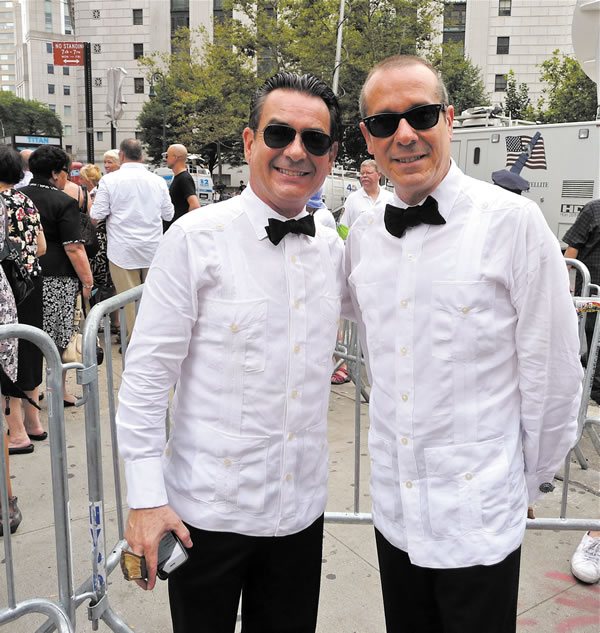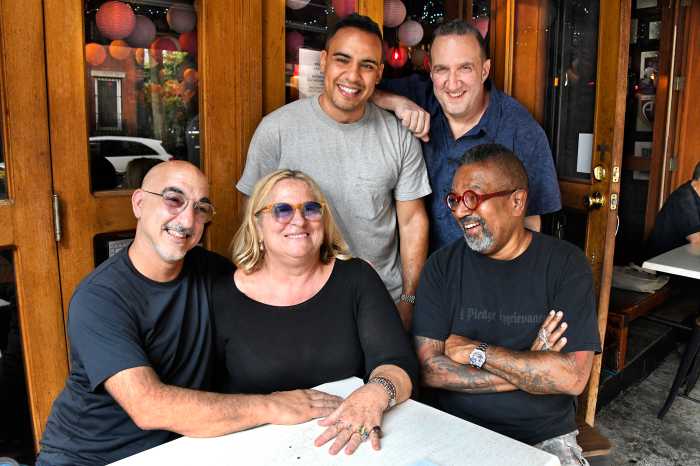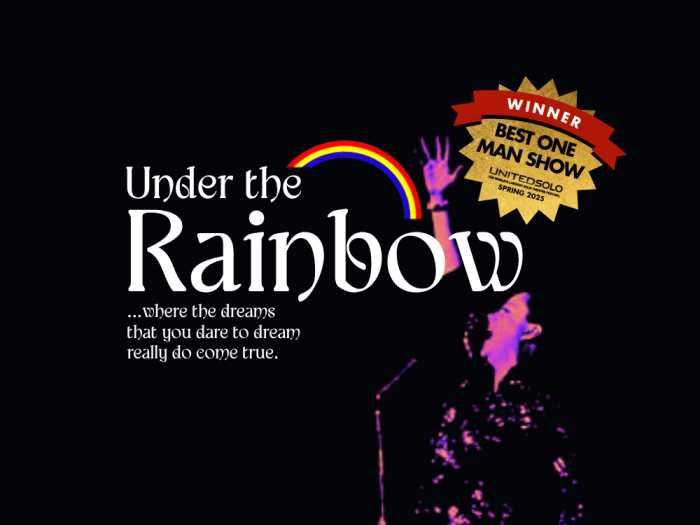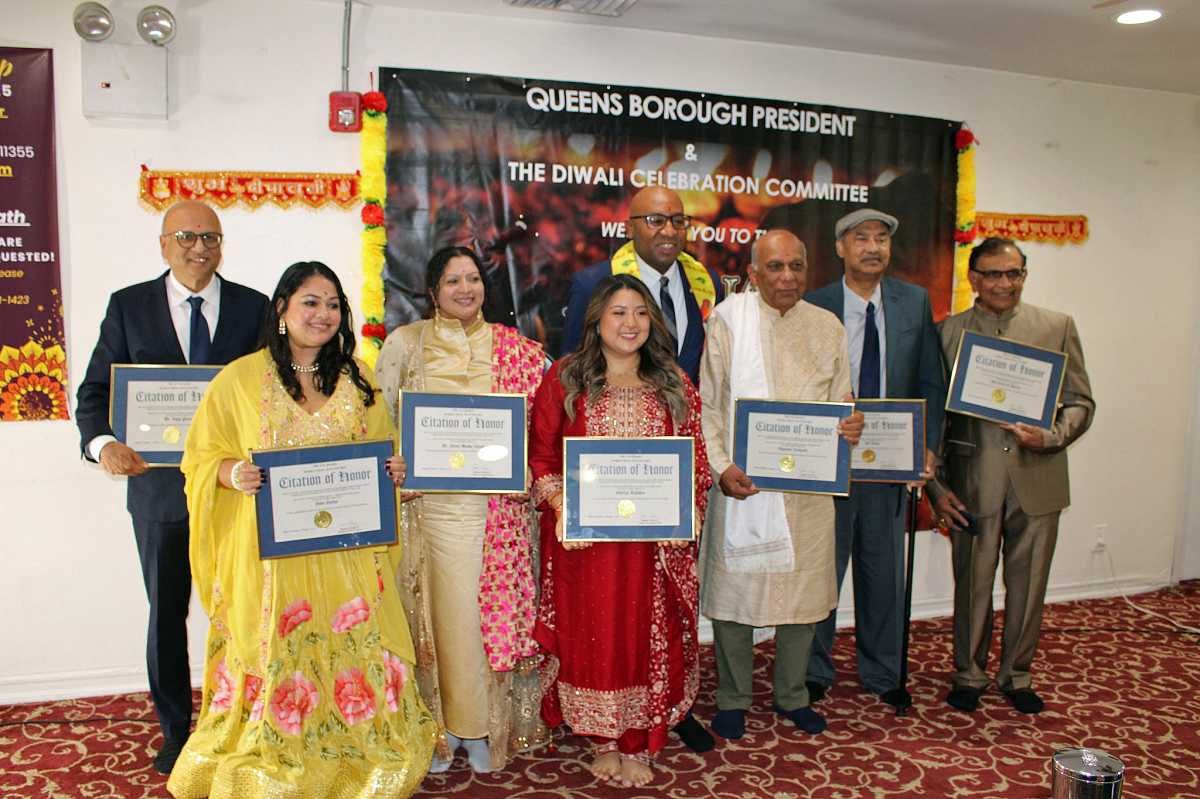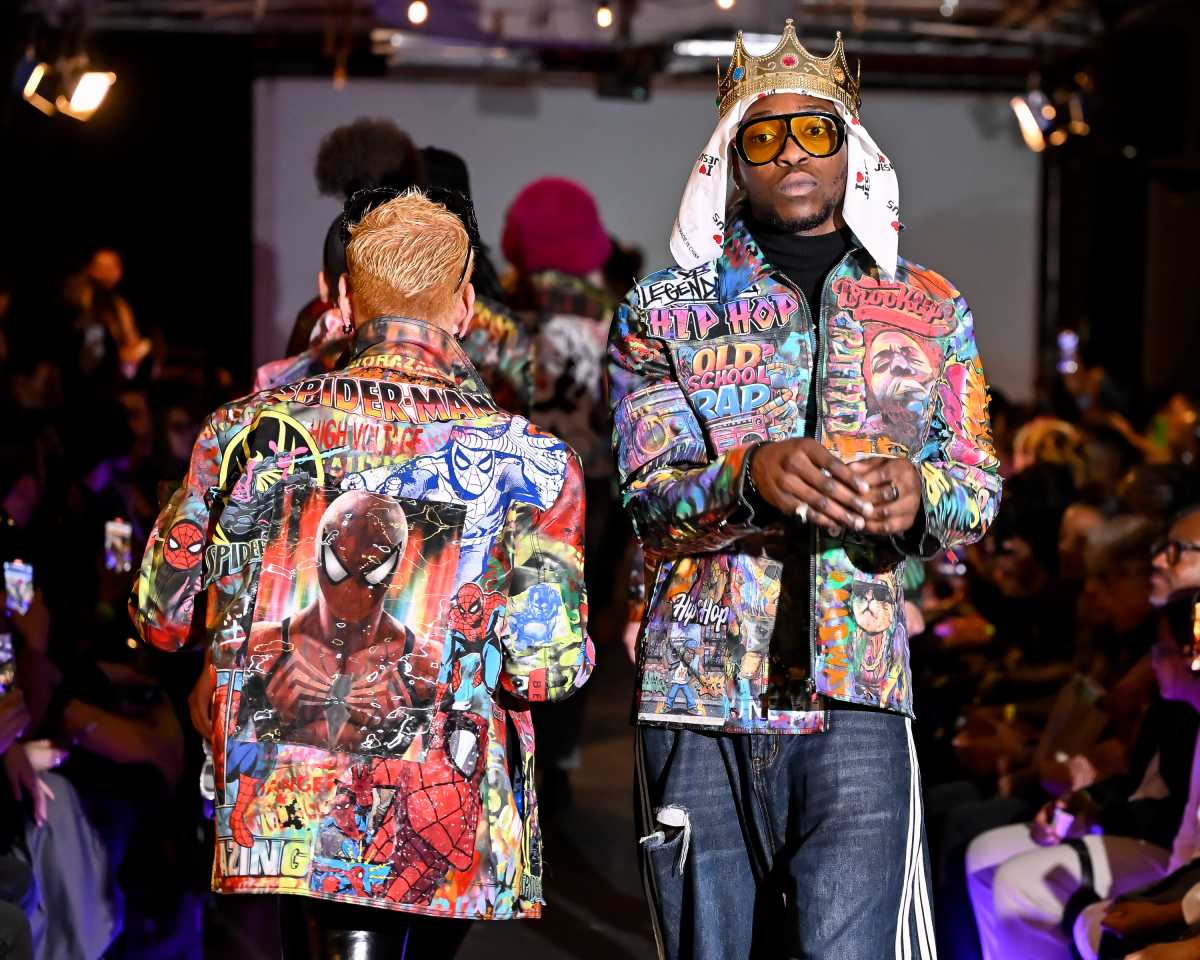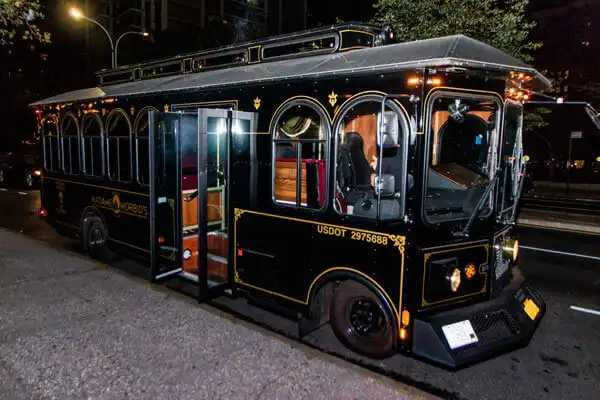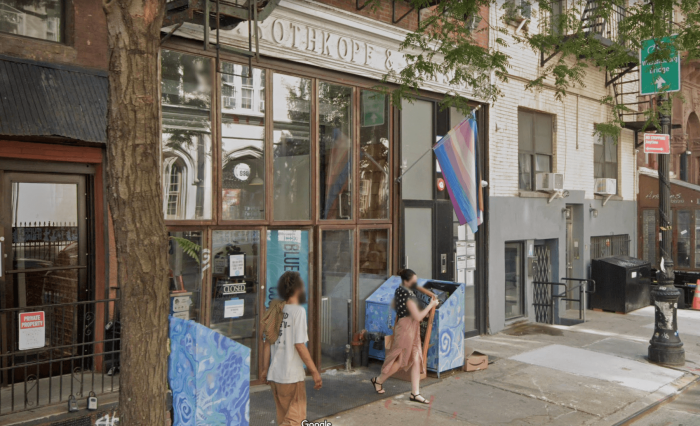By Bonnie Rosenstock
Just as Alexis Rodriguez-Duarte and Tico Torres were about to ascend the steep steps before entering the Office of the City Clerk, their witness and dear friend Jeffrey Cayle, quipped, “Are you sure you want to go through with this?”
About five friends of the couple, who came to support them, immediately chimed in, picking up the jesting, “Yeah, you guys should think it over.” “I think you are rushing into things.” “It’s not too late to back out.”
And, of course, nobody believed for one second that they would. After 27 years as partners and almost four sweltering hours on the long, serpentine line, West Villagers Rodriguez-Duarte and Torres were more than ready to be declared married and official in the eyes of the law.
On July 21, they received an e-mail from the Office of the City Clerk that they had won the lottery, “one of a limited number of guaranteed slots that will allow you to complete the marriage license application process, apply for a judicial waiver of the State’s 24-hour waiting period, and have a wedding ceremony at the Manhattan City Clerk’s Office, this Sunday, July 24th.”
And so the two-day rush began to organize their outfits. (They will have a reception later in the fall.) They wanted to honor their Cuban heritage and strong ties to the Cuban-American community. The couple, in their late 40s, were both born in Cuba a year apart. They and their families were part of the Cuban exodus after Castro took office. Torres and family arrived in Miami in 1967; Rodriguez-Duarte’s family left in 1968, lived in Puerto Rico for two years and emigrated to Miami in 1970. They met in 1982 and started dating two years later.
Rodriguez-Duarte is a fashion and fine art photographer, who is well known for his photographs of Cuban-American celebrities and distinguished figures. His book “Presenting Celia Cruz” is a remarkable testament to the couple’s friendship with the iconic singer. He also helped create “The Life and Music of Celia Cruz,” a current Smithsonian traveling exhibition. His work has appeared in numerous top magazines, as well as The New York Times.
Torres is a fashion stylist.
“We try to work together whenever we can,” said Duarte-Rodriquez.
Torres is employed as an in-house fashion consultant for Talbot’s on Broadway and 82nd Street, so that they have one steady source of income.
“Talbot’s has domestic partnership health insurance, which has been very helpful,” said Torres.
They chose matching, white, Irish linen guayaberas, which were tailor made for them in 1997 by “The King of the Guayaberas” in Miami, where they maintained a second residence until recently. They have lived in the West Village for 18 years.
A guayabera is a traditional Cuban shirt distinguished by patch pockets and two vertical rows of tiny pleats, running along the front and back. In 2010, Cuba declared the shirt its official garment.
“It becomes formal wear with the addition of a black tie, so we have turned it into our tuxedo with a black bowtie,” declared Rodriguez-Duarte.
They were also shod in new, handmade velvet slippers (Torres in black; Rodriguez-Duarte in burgundy) with a Louis XIV Sun King crown design embroidered on the toe end, as part of the “something old, something new,” a gift from Percy Steinhart, the designer/owner of Stubbs & Wooten.
“They have done shoes for the pope also, and here we are — gay marriage,” said Rodriguez-Duarte, enjoying the irony.
Rodriguez-Duarte’s old, gold cufflinks belonged to his grandfather. The handkerchiefs were blue and borrowed. To complete the outfit, Angelica Flowers on Hudson St. gifted them with a calla lily boutonnière.
Everyone always asks them the secret to their relationship longevity.
“We are good friends,” they both answered. “We have had our ups and downs and stuck through it all.”
Some of the lean years were in London in the late 1980s, subsisting on bread and mayonnaise or baked beans on toast for weeks at a time.
“We were flat broke,” Torres recalled. “We would go to gallery openings for the food.”
Then there was the almost four-year separation when Torres, as the only child, moved back to Miami to care for his ailing mother, who is now deceased; his father had preceded her.
“It was almost like a long-distance relationship,” said Rodriguez-Duarte, who flew down when finances permitted.
“Now a lot of people are going through a bad time economically,” acknowledged Rodriguez-Duarte. “Every relationship has its ups and downs. It’s been tough, but all good,” he added. “So when this marriage thing came up, we just knew we were going to do it. And to do it on this historic day is very special.”
Torres joked that his partner hadn’t proposed yet. While the couple was posing for photos in front of the large mural of City Hall in the cavernous, well-lit waiting room, Rodriguez-Duarte got down on his knees, took Torres’s hand and made it formal. Tears welled up in Torres’s eyes as he said yes.
“Alexis kissed my hand, and I was crying,” Torres acknowledged. “It was an out-of-body experience.”
After a half-hour or so wait, the couple’s number, 832, came up on the big board. They went to the corresponding window, filled out all the paperwork, paid the $35 license fee (the $25 justice of the peace’s fee was waived), and after a brief interlude, they were directed to the justice’s chambers.
“The minute we walked into the room, the judge introduced herself. ‘My name is Marcy Friedman, and I’m an out lesbian,’ she said. That, and the fact that she was wearing the same shoes in black — but with an embroidered scales design — we knew we got the right judge,” said Rodriguez-Duarte.
Next they exchanged rings — Rodriguez-Duarte wears the ring his grandfather was married with, and Torres has the ring that he has worn since the beginning of their relationship. Then they exchanged vows, and the judge declared them married.
When they exited the building, there were hundreds of people across the street behind barriers. (Only members of the wedding were allowed on the City Hall side.)
“We flashed our marriage certificate, and they cheered us on,” said Rodriguez-Duarte. “That evening in the West Village, people were stopping us to ask if we just got married, and they hugged us. What New Yorker hugs you?” he asked in amazement. “Sunday proved this was pretty amazing.”
So what’s in store for the newlyweds?
“Our life doesn’t really change the way we do things day to day,” said Rodriguez-Duarte. “What has changed is our legal status. We have rights that straight people have, can file joint income tax returns, make medical decisions in hospitals, have inheritance rights — but, unfortunately, it isn’t federal.”
“This is a civil rights issue, not a religious issue,” added Torres. “Don’t get in the way of my civil rights. We got married on Sunday, but it was bittersweet because in 41 states we are not allowed to do that.”
But for team Rodriguez-Duarte-Torres, what has forever changed is that they can now say husband, “not partner, not boyfriend — but husband.” And that is very sweet.



